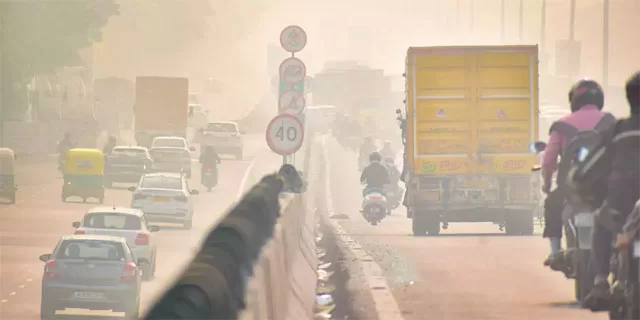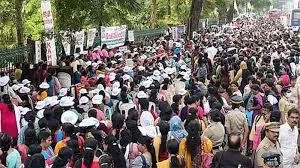Delhi-NCR, January 16 – The Centre has reimposed Stage-IV restrictions under the Graded Response Action Plan (GRAP) in the Delhi-National Capital Region (NCR) as air pollution levels surged to alarming levels. The Commission for Air Quality Management (CAQM) announced the decision on Wednesday, citing the deteriorating Air Quality Index (AQI) in the region.
The CAQM sub-committee stated that measures under both Stage-III (Severe) and Stage-IV (Severe Plus) of GRAP, along with actions from Stage-I and Stage-II already in place, will take effect immediately. The restrictions aim to curb further deterioration of air quality, which is critical for public health.
“All actions of the GRAP schedule shall be implemented, monitored, and reviewed by all the agencies concerned in the entire NCR to ensure that the AQI levels do not slip further. Citizens are requested to strictly adhere to the citizen charter under GRAP,” said the CAQM in an official statement.
Key Stage-IV Restrictions
The GRAP Stage-IV restrictions include the following measures:
- Ban on construction and demolition activities: All construction-related work, except for essential projects like railways, metro, and hospitals, has been halted.
- Entry restrictions for polluting vehicles: Non-essential diesel trucks and BS-IV or older diesel-run heavy goods vehicles registered in Delhi are prohibited from entering the city, with exceptions for essential services.
- School mode shift: Classes for students, except for grades 10 and 12, have been mandated to switch to hybrid mode to reduce traffic and emissions.
These measures follow the temporary relaxation of Stage-III restrictions on January 12, after rainfall briefly improved the region’s air quality. However, the return of unfavorable meteorological conditions, combined with ongoing local pollution sources such as vehicular emissions and paddy-straw burning, has led to a renewed spike in pollution levels.
The GRAP Framework
The GRAP, implemented during the winter months, is a graded mechanism designed to address air pollution in the Delhi-NCR region based on the severity of AQI levels:
- Stage-I (Poor, AQI 201-300)
- Stage-II (Very Poor, AQI 301-400)
- Stage-III (Severe, AQI 401-450)
- Stage-IV (Severe Plus, AQI above 450)
Delhi-NCR’s air quality often worsens in winter due to a combination of emissions from vehicles, industrial activities, stubble burning, and stagnant weather conditions. The reimposed restrictions under Stage-IV are expected to remain in place until AQI levels improve significantly.
Appeal to Citizens
The CAQM has urged citizens to comply with GRAP guidelines and adopt sustainable practices such as carpooling, using public transport, and limiting outdoor activities. It emphasized the need for collective action to combat the worsening air pollution and safeguard public health.
Environmental experts warn that sustained efforts, beyond temporary restrictions, are essential to address Delhi-NCR’s recurring air quality crisis.












